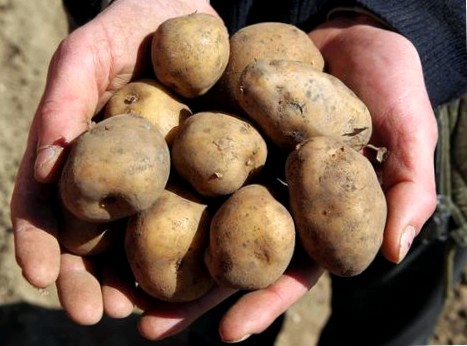
The judges upheld current EU rules that allow farmers to continue to grow old varieties of vegetables and potatoes even if industrial producers no longer offer them.
The effects of the ruling are controversial: according to the environmental association BUND, the agricultural industry’s monopoly on seeds has been "thwarted. The federal ministry of consumer affairs also saw the ruling as a step towards preserving the diversity of varieties. Critics, on the other hand, complain that these are only individual traps with no broad effect and that the marketing bans remain largely in place. Old varieties continue to disappear, the campaign for seed sovereignty complains.
The german farmers association (DBV) expressively buries the verdict. The arbeitsgemeinschaft bauerliche landwirtschaft (abl) spoke of a "victory for biodiversity" and assumes that many varieties can now be traded again. The way is clear for varieties such as the "rosalie" potato, the "hinrichs riesen" bush bean or the "lobbericher mohre", abl managing director georg janben told dpa. A number of affected breeders is not known.
A case like the potato variety "linda" is no longer possible in the future, according to the abl. In 2004, the manufacturer removed this popular variety from the seed register so that farmers could not use it without a license. Farmers and consumers protest. The interest group wants to ensure that the rules are extended from vegetables to cereals. "We are counting on the resistance of the farmers," said janben.
The seed market is fiercely contested and about two-thirds of it is controlled by a few large corporations. The best known are the global agricultural and biotechnology company monsanto, which is controversial because of its genetically modified products, the swiss agricultural company syngenta and the US company dupont. In germany, this includes bayer (subgroup bayer cropscience) and BASF (genetically modified potato "amflora").
According to EU law, uncertified varieties cannot be marketed, but must be approved in at least one EU country. However, because licensing is expensive and time-consuming, only large companies can afford it. Rare and regional varieties are therefore disappearing more and more from the market.
In this specific case, the industrial seed producer graines baumaux filed a lawsuit against the farmers’ seed network kokopelli, which was established in france. The network offered seed of more than 461 varieties that were not registered in official variety catalogs. Graines baumaux sued for unfair competition, seeking damages and a ban on marketing the varieties that were not registered in the official seed catalog.
According to the judges, the controversial EU directives are valid. They uphold the principle of sustainability and ensure that productivity increases, a rich supply of plant genes is maintained and the internal market for mice seed grows, they argue.
According to the directive, a new variety is only admitted to the catalog if it is "distinct," "persistent" and "sufficiently homogeneous. There are exceptions for varieties that are threatened with extinction ("landraces"). Small farmers, private individuals and small agribusinesses are allowed to grow and distribute them without a certificate. Years ago, farmers’ groups had already fought for this exemption, and in 2009 it was made law – but only for vegetables. In addition, tight restrictions apply to regions and small quantities.
The reactions were mixed. The chairwoman of the green parliamentary group renate kunast spoke of a "victory for biodiversity. The court ruled "against the international seed companies who, like biopirates, hijack patents for staple foods around the world."The campaign for seed sovereignty takes a very different view: "this ruling perpetuates the favoritism of the seed industry and its industrial plant varieties."
The environmental organization BUND stressed that the biodiversity of seeds helps agriculture to adapt to climate change. "Old varieties are often more resistant to diseases, pests and drought than high-yielding seeds," said BUND ag expert reinhild benning.
According to the federal association of german plant breeders (BDP), the ruling protects farmers and consumers. It ensures that only high quality and good varieties continue to come onto the market, said BDP executive director carl-stephan schafer.